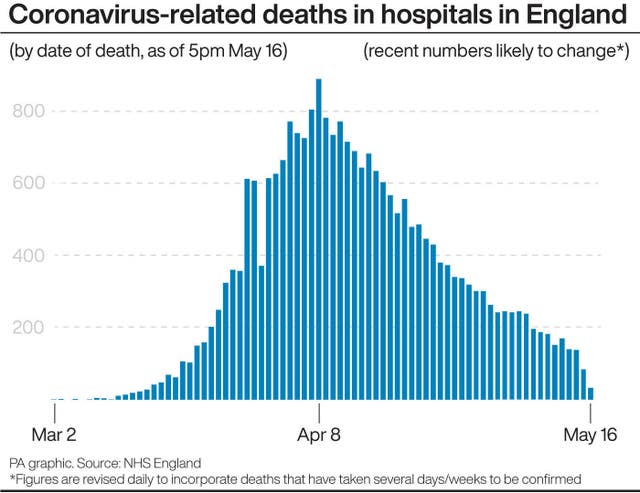Cabinet Office Minister Michael Gove has said there are “big lessons” to be learned from the treatment of care homes during the coronavirus outbreak.
Mr Gove said the Government had taken “significant steps” to improve the situation of those in care homes.
However, amid growing criticism that they had failed to provide adequate support to the sector, he acknowledged the situation remained a “challenge”.
“There are big lessons to be learned,” he told BBC1’s The Andrew Marr Show.
“We are still living through this pandemic and there will be lessons to be learned. We have taken significant steps to improve the care of people in care homes.
“There will be a point in the future when all of us can look back and reflect and make sure we have learned the appropriate lessons.
“At the moment, we are focused on making sure we beat the virus and protect people as effectively as possible.”
Mr Gove also issued a fresh appeal to teaching unions and to councils who have expressed concerns about the Government’s plans to begin reopening schools from next month to think again.
“The clear scientific and clinical advice is that it is safe to have schools reopen accompanied with social distancing,” he said.
“Children only have one chance at education. Over the last decade we have made significant strides in closing the closing the gap between the richest and poorest in our schools. This lockdown has put that at risk.
“If progressive countries like Denmark can be teaching children and have them back in schools, then so should we. The whole point about being a teacher is you love your job. It is a mission, a vocation, to be able to excite young minds.”
Mr Gove said that crucially the R number – the transmission rate of the disease – remained below one, the level at which experts warn Covid-19 will begin to spread again exponentially.
He said the Government was on track to meet its target of getting 18,000 contact tracers by next week, with 17,200 now recruited.
As a result, the coronavirus test, track and trace programme would be up and running by the end of month, putting them in a stronger position to deal with any fresh outbreaks, he added.
“As we make progress – and we are making progress – in keeping the R rate below one and in reducing the number of infections, so if there is an outbreak we can test, track, trace and isolate so the situation is now better,” he said.
England's deputy chief medical officer Dr Jenny Harries on hygiene interventions in educational settings. pic.twitter.com/kwBPnzNt7f
— Department for Education (@educationgovuk) May 16, 2020
“We cannot have a situation where we keep our economy and our schools and our public services continually closed down because the health consequences of doing so would be malign as well.”
There was a boost for the Government as the Association of School and College Leaders said it would be advising schools to begin reopening from June 1.
General secretary Geoff Barton said the body had been “reassured” by talks on Friday with Government scientific advisers.
However, he cautioned some schools may need more time to put the necessary preparations in place.
“If schools decide they are not ready to open at that time, or that they need to take a more phased approach such as using rotas, we will back them up on that decision,” he said.
Other unions have said Friday’s briefing raised more questions than answers and have welcomed an offer of further talks with Education Secretary Gavin Williamson.

Labour deputy leader Angela Rayner backed councils such as Liverpool which have said they will not reopen schools on June 1.
She said there are concerns among authorities in the North that the virus is still spreading there more quickly than elsewhere in the country.
“We believe the R rate is higher in those areas, in those regions, so therefore we want the Government to publish the science behind it and provide the support,” she told The Andrew Marr Show.
“Councils want to make sure their citizens are safe. I support them in trying to do that.”




Comments: Our rules
We want our comments to be a lively and valuable part of our community - a place where readers can debate and engage with the most important local issues. The ability to comment on our stories is a privilege, not a right, however, and that privilege may be withdrawn if it is abused or misused.
Please report any comments that break our rules.
Read the rules hereLast Updated:
Report this comment Cancel